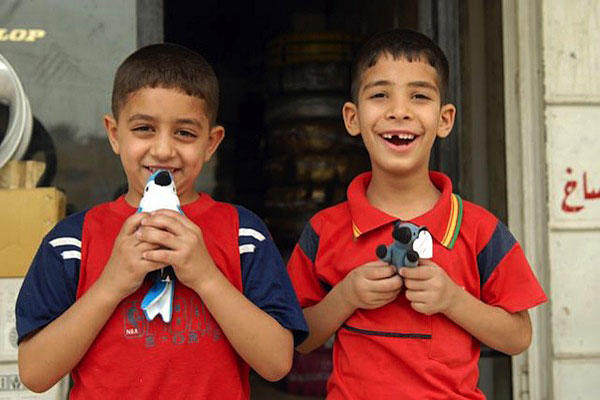When your child’s BFF moved last summer, you were confident you did all you could do to help him with the feeling of loss he was going to experience.
After the tearful goodbye, you pulled out all the parenting empathy you could muster and redirected your child’s attention to the friends and activities that remained in his life and brought him happiness.
Now, six months later, you find your child in tears over missing that same BFF-- the one he hasn't mentioned or contacted. Although you are taken off guard that he is still sad months later, you want to help your child cope with his feelings
Military kids need to learn coping strategies for managing difficult emotions because of the unique circumstances, and constant life transitions, they experience. If your child is feeling distraught over missing a friend, here are steps you can take to help him develop his own coping strategies:
Turn off your screens and listen. Turn off your screens. Stop all your activities. Make eye contact with your child and listen. Listening attentively to your child builds trust and strengthens the parent-child bond.
Letting them talk it out with you gives them the opportunity to verbally express themselves in a healthy manner and in a supportive environment. You are teaching them that talking to a trusted person in their life, and sharing their feelings, is a healthy coping strategy that may make them feel better.
Show your child empathy. While you are attentively listening to your child, show him empathy. Acknowledge the feelings your child is experiencing as being real and important to him. When you say, “I understand you are feeling sad,” or “I see you are feeling sad because you are crying,” you are helping your child learn you understand him and are there for him.
Empathizing and labeling feelings teaches your child to understand what he is feeling. Understanding how one feels is the first step to learning how to manage those feelings in a healthy way. Also, when you show empathy, you model empathy -- an important character trait for everyone.
Use the past to manage the present. Use a similar situation from your past or your child’s past to teach him how to use past experiences in new situations. Helping him see that he has managed these feelings in the past may give him the confidence he needs, and perhaps a way to cope with the current situation.
Teach healthy behaviors. When your child is feeling really sad, teach him healthy ways to make himself feel better. Look at pictures from times shared with that friend; talk about the special things they did; help him contact that friend to re-connect.
If it isn’t helpful to focus on the friend who is gone, encourage him to redirect his attention on his current friends. No friend available? Help him see how doing something he enjoys -- sports, exercise, hobbies, music, reading -- might take his mind off missing the friend and help him feel better.
Seek outside help. If you feel your child is down in the dumps for too long, or his mood is interfering with his daily functioning, seek help from an outside source. Most installations have Military Family Life Consultants who may be helpful in this situation. Ask your child’s PSM for guidance. Call Military OneSource at 1-800-342-9647.
Military kids do learn to cope with so many of the challenges of military life. Once your child appears to have successfully navigated the situation, encourage him to reflect upon what happened, why he felt what he did, and how he coped. This now becomes a frame of reference for your child that points his way to a happier future.
-- Becky Harris, MA, is co-director of H&H Family Education and Advocacy Center. The goal at H&H is to develop an awareness of the unique challenges military families experience because of their transitional lifestyle. She is an Air Force spouse, mother of two children, and tries to train two dogs. You can follow her at www.hhfamilycenter.com.




























